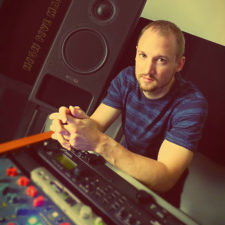
Mastering is the final creative stage of the music production. It ensures not only that the data are properly prepared for different distribution platforms, but it also ensures that the audio sounds the best way possible for a targeted platform. While the mixing engineer focuses his attention to different elements of the mix, the mastering engineer listens to the audio as a whole, which is where the main difference is. Mastering engineer makes sure that the frequency spectrum and compression is consistent throughout the audio, and that the metadata are inserted and eventual clicks and pops are removed.
Compared to recording and mixing studios the mastering studio has only one non-compromise goal: an absolute monitoring transparency and balance. In recording studios the monitoring serves several purposes such as monitoring for recording musicians, mixing, editing, recording and so on. This obviously compromises the monitoring quality, because do-it-all monitoring solution is necessary. In mastering on the other hand, the monitoring serves only one purpose. Monitoring that encompasses the full audible frequency spectrum and the studio design reflecting this, which allows for pristine monitoring. The room needs to have as flat frequency response as possible, so that it enables the mastering engineer to spot problems in the mixes. Otherwise these might -in a compromised listening environment- remain hidden. While mixing engineers often travel from studio to studio, mastering engineers work in a single room, with which they are very familiar with. This enables them to spot problems with mixes more easily.
Other necessary gadgets are also necessary for mastering compared to other production disciplines. One such is a matched volume input and output monitoring, which is extremely important in mastering. This is provided by a mastering console, which serves as sort of a brain in a mastering studio, controlling all the other equipment. It’s sort of mastering engineer’s “mixing desk” such as SSL, or Neve. This equipment is obviously very expensive and knowing how to use it requires years of practice, which is why mastering is a very knowledge, and experience demanding discipline.
If an artist decides for an unprofessional mastering, executed by someone not specialized in this discipline, and without the proper equipment, he risks that all of his efforts with recording, editing, mixing and producing will be compromised. Mastering can be viewed as sort of a retouch in today’s media. Each and every professional picture you see in media today has been photoshopped in one way or another. The picture is being retouched by a professional who enhances it by using various techniques. Bringing it to life and giving it that extra “Je ne sais quoi”. If the retouch is done badly, the picture can look terrible, even if the original was great.
In today’s music production, where most of the records are made in a non-professional environment, by people who often lack necessary skills and experience, professional mastering is the final ace of spades in the hands of musicians and record producers.

